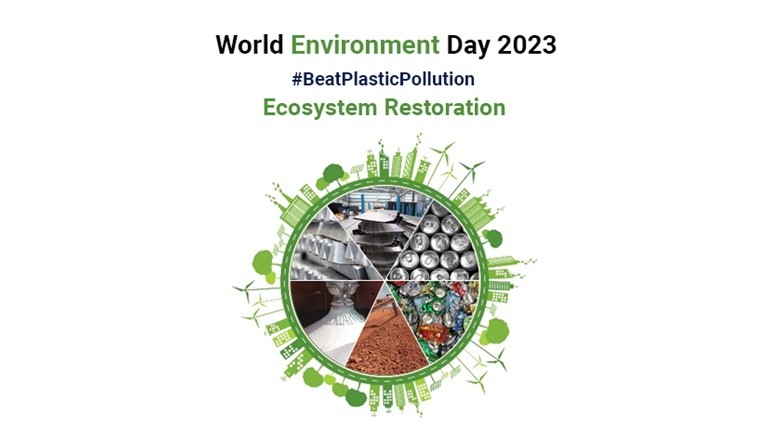

Observed annually on June June 5th, World Environment Day is an international event dedicated to raising public awareness of environmental concerns and encouraging positive actions to conserve our planet. The responsible use and management of resources, including materials such as aluminium, are important to ecological conservation.

Aluminium, a versatile metal, is essential in many industries, but its production and disposal have serious environmental consequences. As a result, World Environment Day is a perfect opportunity to emphasise the significance of sustainable aluminium production and recycling practices.
Importance of aluminium:
Aluminium is the third most plentiful element in the Earth's crust, accounting for approximately 8 per cent of its total weight. It is lightweight, resilient, and highly adaptable, making it a popular material in various industries such as transportation, construction, packaging, and electrical. Its distinct qualities, including corrosion resistance and excellent conductivity, have led to its widespread application in daily products ranging from automobiles and aeroplanes to beverage cans and electronics.
Environmental challenges:
Although aluminium has many uses, its production and mining present serious environmental problems. The extraction of bauxite ore, the principal source of aluminium, is the most considerable environmental risk related to aluminium. Deforestation, habitat damage, and soil erosion all affect bauxite mining. Furthermore, refining uses a lot of energy, which increases greenhouse gas emissions and the effects of climate change.
The importance of recycling:
Aluminium has a significant advantage over many other materials because it is infinitely recyclable while retaining its original qualities. Compared to primary production, recycling aluminium uses only a fraction of the energy, resulting in significant energy savings and lower greenhouse gas emissions. Recycling aluminium also helps to conserve natural resources and decreases the demand for new mining operations.
Promoting sustainable aluminium practices:
World Environment Day provides an excellent platform to promote sustainable aluminium practices. Here are a few key strategies that can contribute to a more sustainable aluminium industry:
Efficient production: Aluminium producers should strive to improve energy efficiency in the production process. Technological advancements and the utilisation of renewable energy sources can assist in lowering the carbon footprint of aluminium production.
Responsible mining: Bauxite mining companies should adopt responsible practices prioritizing land rehabilitation, reforestation, and minimizing the impact on local ecosystems. Engaging with local communities and ensuring their participation in decision-making processes is crucial.
Recycling awareness: It is critical to raise knowledge about the benefits of aluminium recycling among consumers, businesses, and governments. Education campaigns can educate the public on the convenience and importance of recycling aluminium items, as well as urge people to engage in recycling efforts.
Recycling infrastructure: To facilitate the efficient recycling of aluminium, governments and municipalities should invest in robust recycling infrastructure, such as collecting networks and recycling facilities. Individuals and businesses can be encouraged to recycle aluminium by implementing recycling programmes and offering incentives.
Circular economy: Embracing a circular economy approach can maximize the value of aluminium throughout its lifecycle. This involves designing products for recyclability, promoting the use of recycled aluminium in manufacturing, and establishing closed-loop systems to ensure that aluminium is continually reused and recycled.
Conclusion:
The celebration of World Environment Day serves as a reminder of our shared obligation to protect the environment. As an extensively used material, aluminium poses both obstacles and potential for sustainability. We can reduce the environmental impact of aluminium and contribute to a more sustainable future by fostering efficient production, responsible mining, and extensive recycling. Adopting these practices would not only assist in preserving natural resources but will also aid in the fight against climate change and the preservation of ecosystems for future generations.
The latest AL Circle industry-focused outlook report series, 'Sustainability in the Global Aluminium Industry', reveals that achieving sustainability in the aluminium industry aims to reduce emissions and carbon footprint and shift towards renewable, clean energy sources.



Responses






